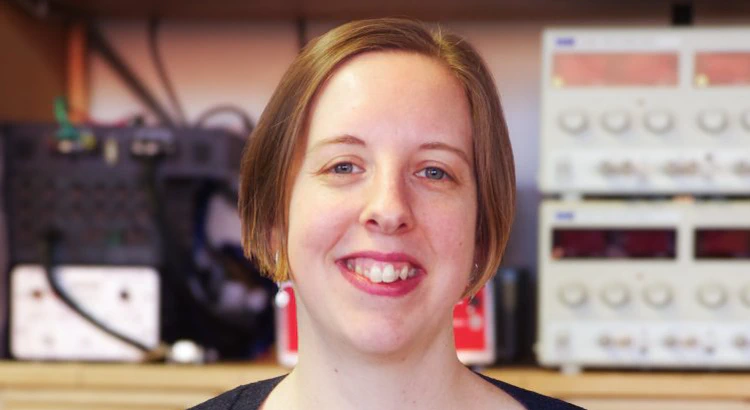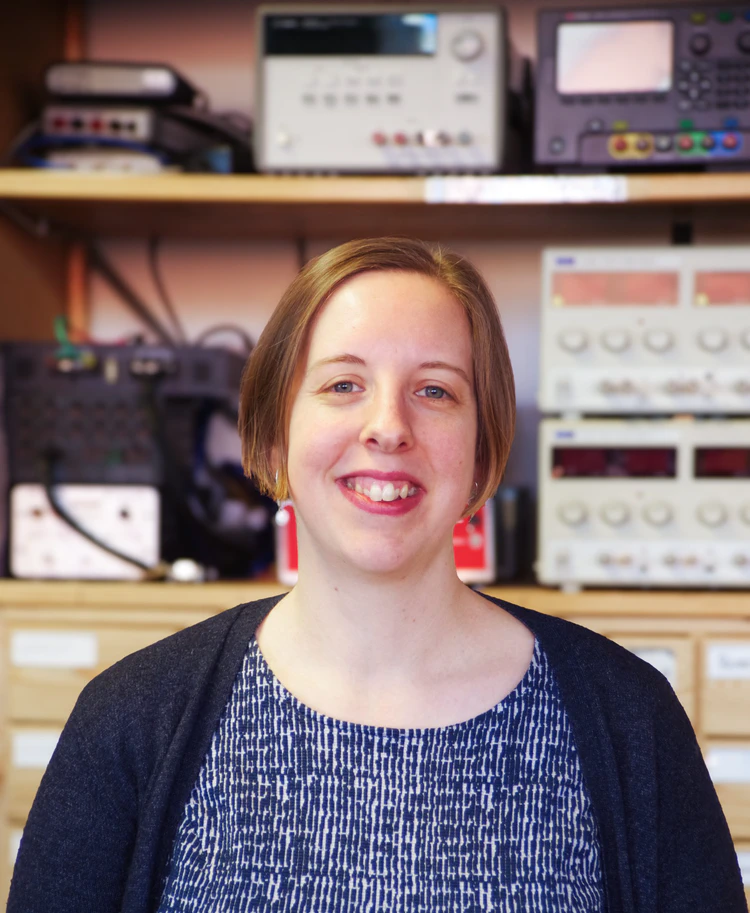
Victoria Cripps
Victoria Cripps, 38 years old, has been a research engineer at IRF in Uppsala for ten years, working within the research program Space plasma physics.
**Education and degree: ** Masters of Engineering (MEng), University of Leicester, UK.
Tell us about your duties and possible areas of responsibility.
– Quality control engineer, including responsibility for export control and chemicals.
What does a research engineer do at IRF?
– Design, analyse, build and test instruments for scientific space missions. A research engineer at IRF often has responsibility for a range of different tasks, which can also include leading consortia comprising of other institutes and universities.
Why did you choose to contribute your knowledge and expertise to IRF in particular?
– I moved to Sweden from the UK, having worked as an electrical and project engineer in the onshore gas industry. IRF was the first to offer me a job!
What opportunities do you have as an engineer at your workplace?
– We are a relatively small workplace so there are opportunities to influence decisions and make improvements to the way that we work. Being part of a small engineering group means that you can have lots of different responsibilities and therefore get a deeper understanding of a broad range of topics.
Can you describe what it is like to work at IRF?
– Lots of variation day-to-day, often swapping between different projects or tasks which are at different stages of development. I have a lot of interaction with people both inside and outside of IRF and many international collaborations. Most of my regular meetings are now online but there is the chance to travel to meetings, test campaigns, training courses, etc. I like the Swedish work culture and that cake is taken seriously!
When is your work extra fun and developing or less fun and extra challenging?
– I work with a great group of people and there is a nice atmosphere within the workplace. There is the opportunity to take part in range of outreach activities, anything from talks in local schools to large science festivals, which is something I really enjoy. I also think it’s really exciting that equipment that I’ve had in my hands is now flying in space. On the downside, as we are a small group of engineers covering a wide range of areas, it can get stressful when we are approaching big deadlines.
How would you describe your work to a person who wants to work as an engineer at IRF?
– I am a multi-tasker! On the project-side I am responsible for product and quality assurance, and work a lot with documentation, requirements, procurement and some project management. I am regularly in contact with colleagues in other institutes, ESA, suppliers, etc. around the world. Within IRF I also develop routines and guidelines, and perform chemical risk assessments and inventories.
